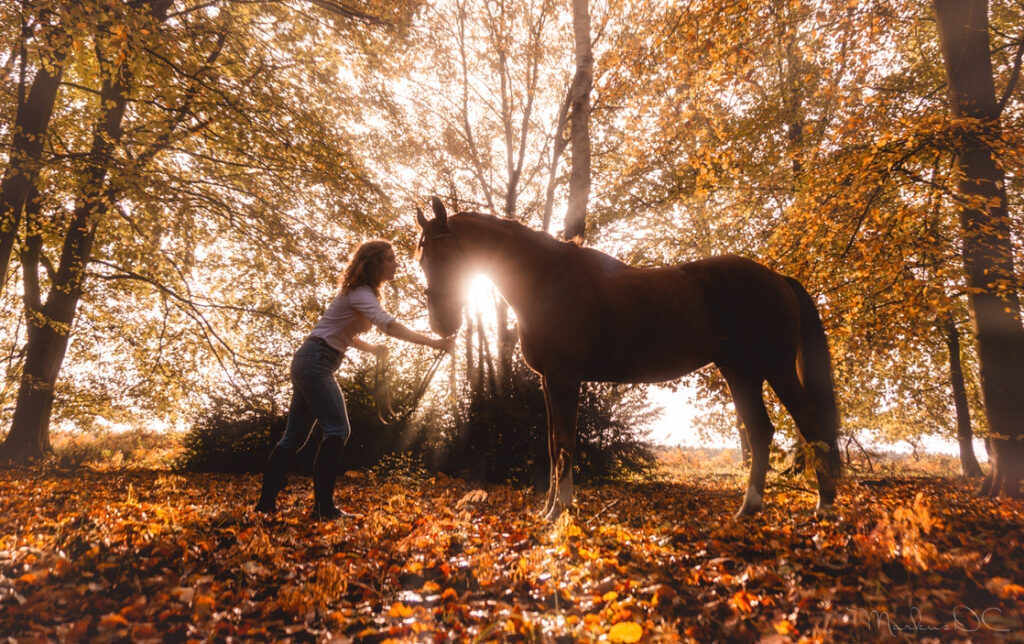Our Services
Please click to find out more about each of the below, or scroll to browse:
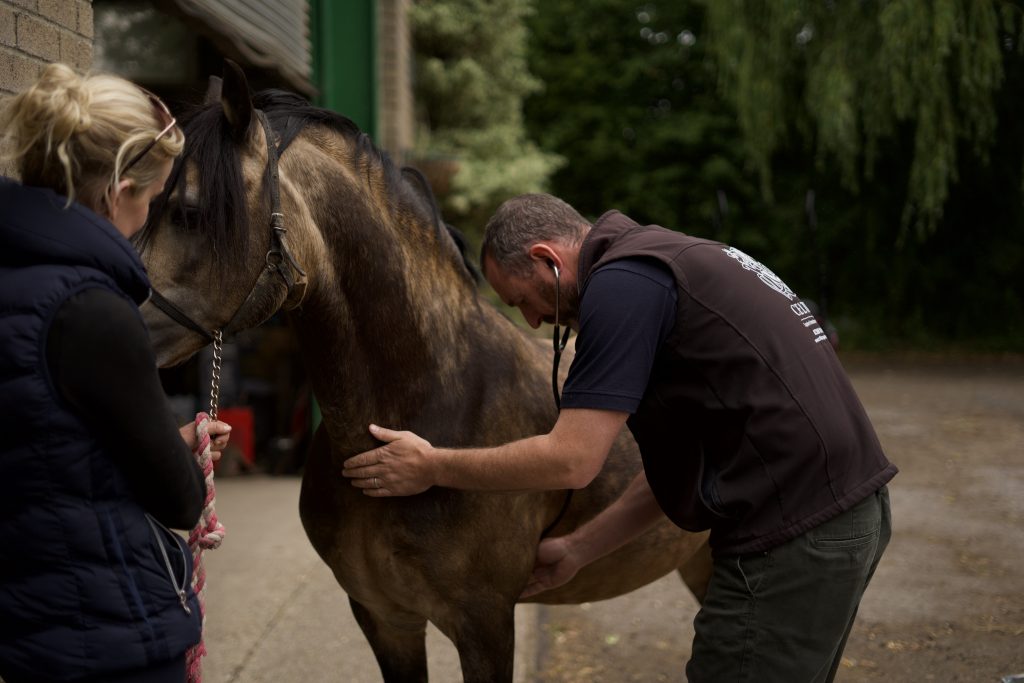
Routine Health Care
Jab and go? We don’t think so! We like to get a good feel for how your horse, pony or donkey is getting on before bringing a needle into the situation. Detection of potential problems at an early stage, allowing early investigation and intervention, will maximise the chances of a successful outcome. That’s why we believe in carrying out a routine health check with each vaccination and dental, and you’ll often find the vets discussing worming strategies, nutrition and behaviour alongside this. We know that they are your pride and joy, and so their health is our top priority.
24-Hour Emergency Care
We are here 24/7, 365 days of the year. We are one of the very few independent equine veterinary practices locally still providing our own emergency service. We know how stressful it is when disaster strikes and your horse, pony or donkey becomes unwell or has an accident. We feel that it is important to see a friendly face that you know and trust, and that has access to your equid’s clinical history at all times. All ‘out-of-hours’ calls go through to an answering service, who then contact the vet on call. Please note that there is a surcharge for ‘out-of-hours’ call outs, and as per practice policy for our routine work, all treatment must be paid for at the time of the visit.
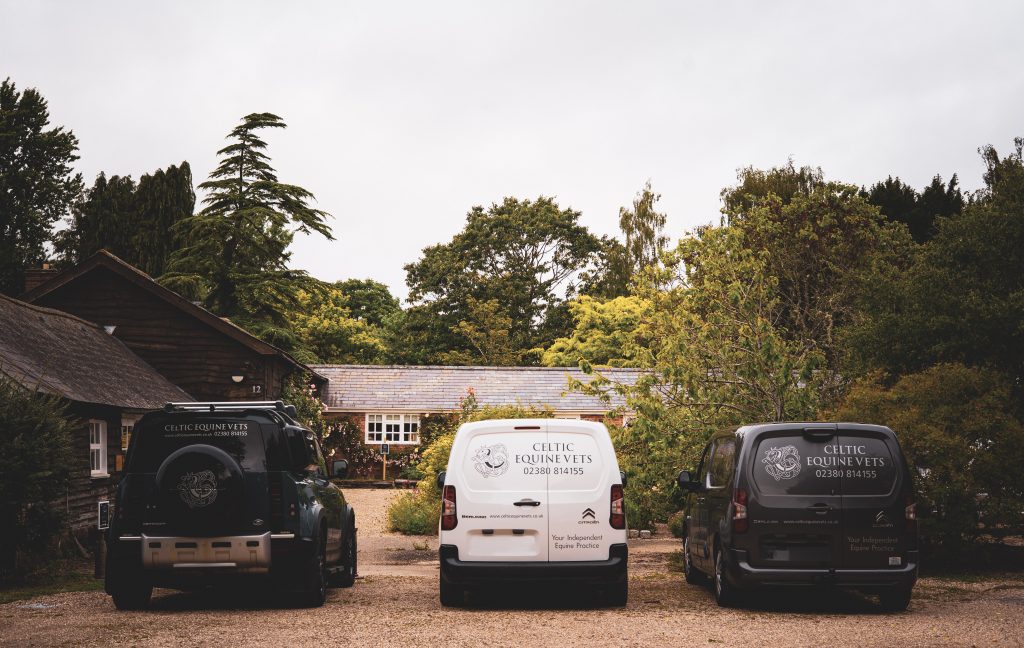
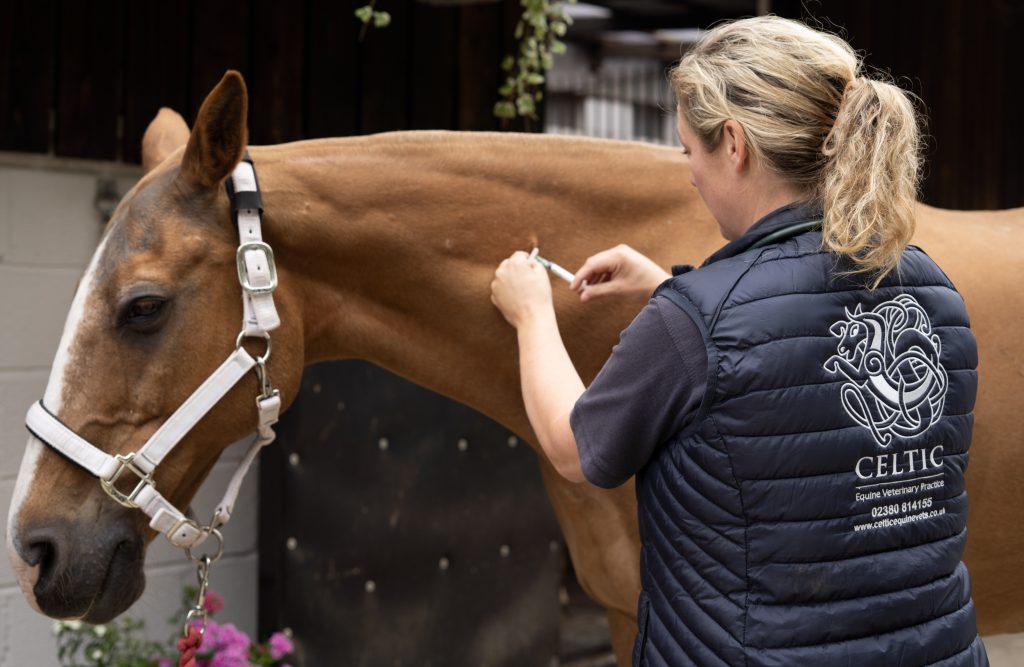
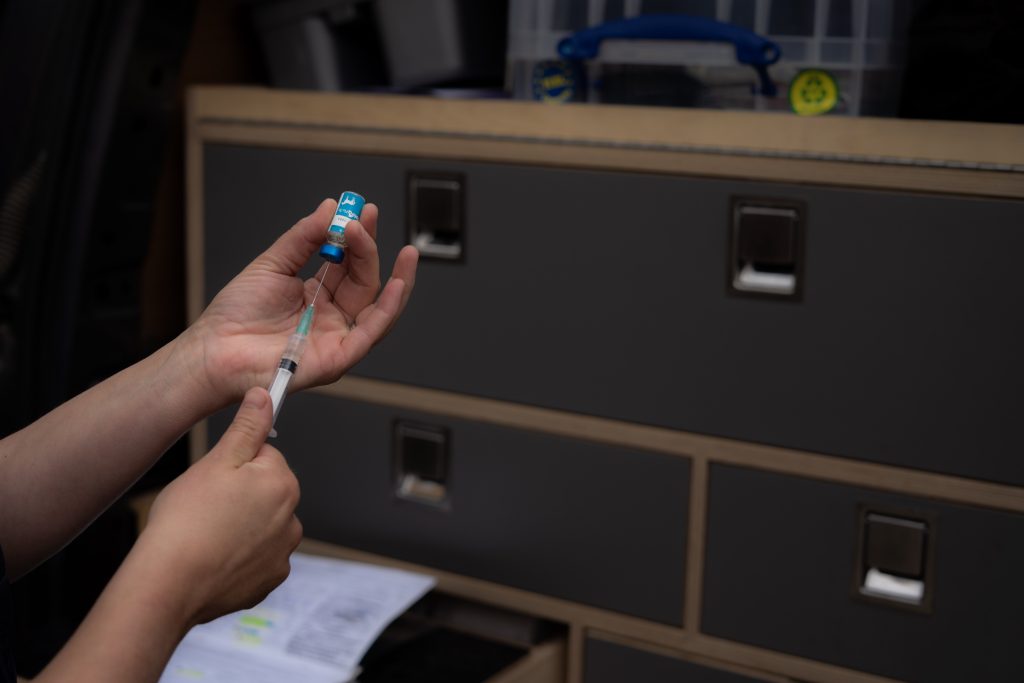
Vaccinations
Equine Influenza (‘flu’)
The primary course comprises two injections given four to six weeks apart, followed by a booster five months after the second vaccination. Booster vaccinations should be given at least annually, but as of 2024, many competitive bodies and venues require boosters within six months of competing. Horses are not permitted to compete after the first vaccination in a course, or in the seven days after the second vaccination or subsequent boosters.
Tetanus
The primary course comprises two injections given four to six weeks apart, followed by a booster in twelve months. Subsequent boosters are due every other year. Tetanus can be vaccinated for individually or in combination with Equine Influenza (see above). We recommend that every horse, pony or donkey receives vaccination against tetanus (a bacteria found ubiquitously in the environment, particularly in soil and on rusty metal (e.g. nails, screws, gates etc)). This is essential for horses undergoing surgical procedures, but also in the event of sustaining a wound or foot abscess.
Equine Herpes Virus
Equine Herpes Virus can cause respiratory disease and abortion. Vaccination can reduce the severity of signs in the event of infection, and is particularly important in broodmares. The primary course consists of two vaccinations given four to six weeks apart, followed by six-monthly boosters. Pregnant mares should be vaccinated in the fifth, seventh and ninth month of pregnancy.
Routine and Advanced Dentistry
No teeth, no horse. Our vets are experienced in all aspects of routine dentistry. Alan has a particular interest in equine dentistry, often taking referrals from local Equine Dental Technicians (EDTs) and performing more advanced dental procedures. Our vets are well equipped with modern dental equipment including battery-operated motorised rasps. What about the little people? Each vet caries a pony gag and head stand designed for Shetlands, miniature ponies and donkeys.
21st century equine dentistry is more than ‘just a rasp’. Our dental examinations are performed under standing sedation to allow thorough examination of the mouth and identification of pathology. The best bit? The cost of sedation is included in the dental package.
We are equipped to undertake more advanced dentistry including oral extractions under standing sedation and local anaesthesia. In the event that dental X-rays are required, each vet caries a portable, battery-operated X-ray as standard. We also work closely with travelling experts, who can perform more advanced dental procedures such as fillings and removal of complicated tooth fractures from the comfort of your stable or yard.
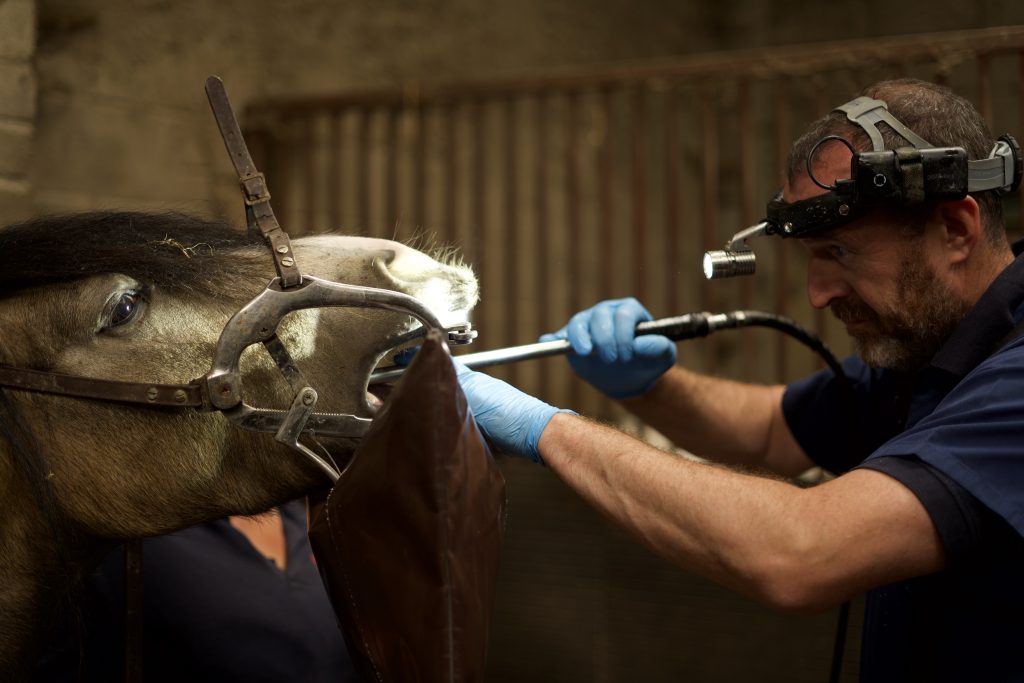
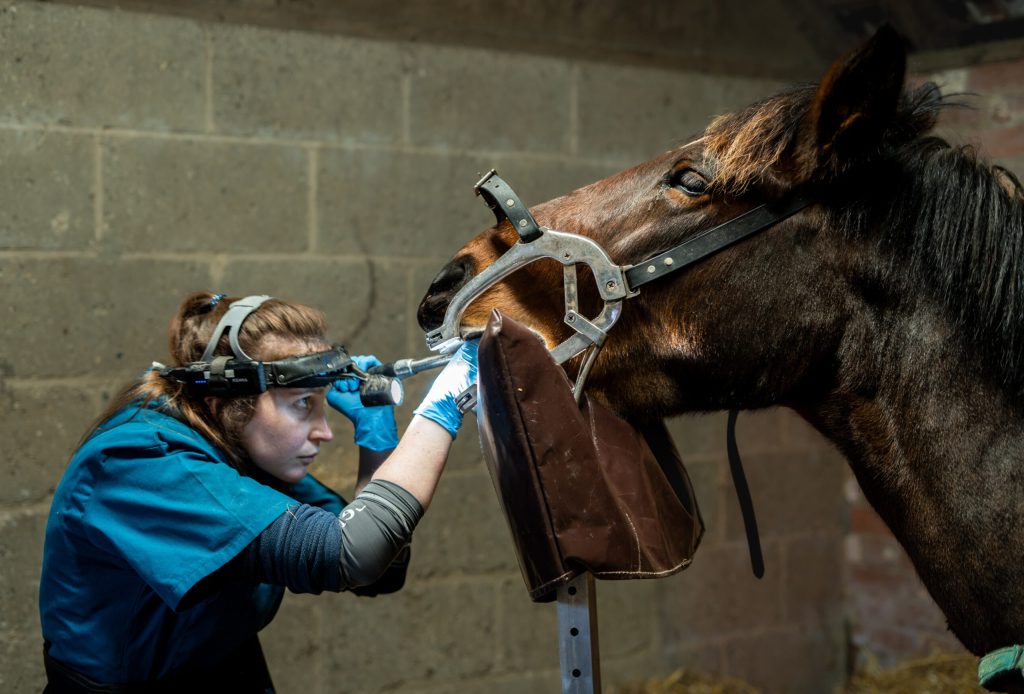
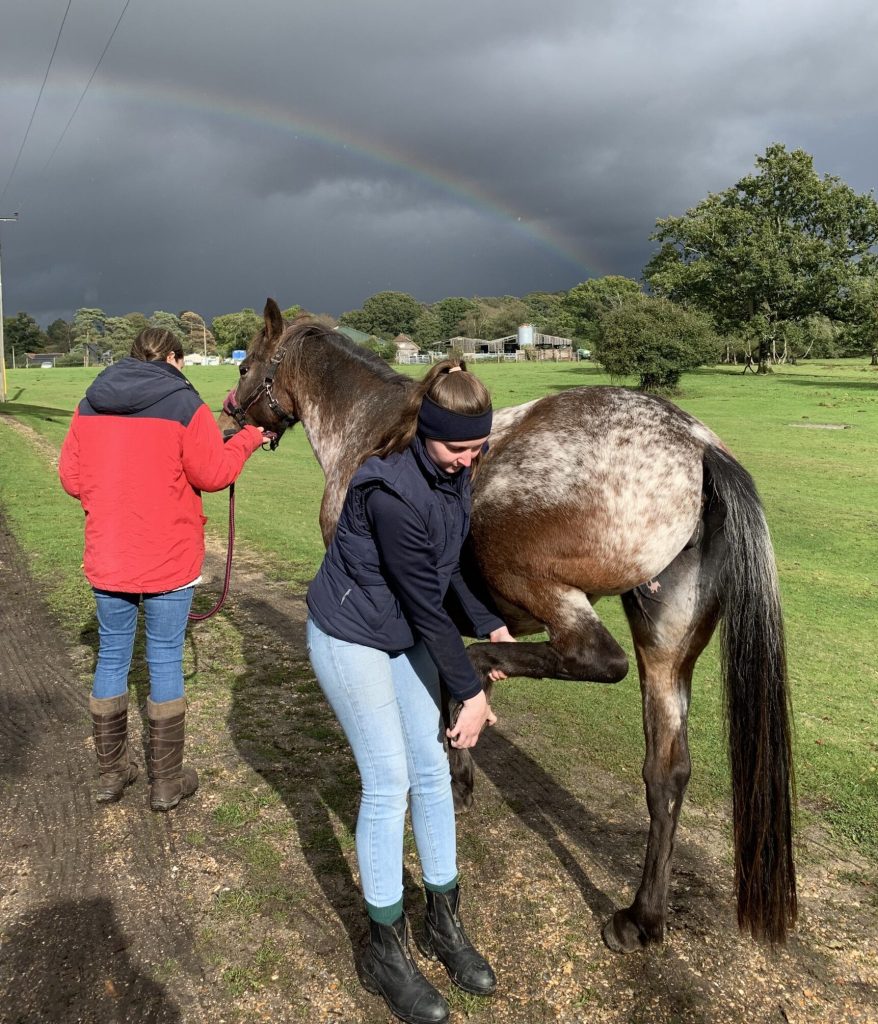
Lameness Investigations
There is evidence to suggest that nearly one in two sports horses in general work may be lame, with the lameness going unnoticed by owners and trainers. Lameness investigation involves localising the area causing discomfort through the progressive desensitisation of the limb from the bottom up through ‘nerve blocks’, before instigating more focussed imaging of the area. Our portable and battery-operated X-ray and ultrasound carried by each vet allow this work up to be performed at home in most cases (appropriate facilities for trot up +/- lungeing are usually required). Our vet Molly loves all things lameness and would be delighted to help.
We believe in a holistic approach to lameness investigation and encourage a collaborative approach with physiotherapists, farriers and other related paraprofessionals.
Medical Investigations
Has your horse lost weight recently? Perhaps they’ve had recurrent bouts of colic? Or maybe they are just generally off-colour and you can’t quite put your finger on why?
We can investigate more complex medical cases from home, negating the stress and cost of travelling your horse to a clinic setting. This is aided by portable X-ray, ultrasound, gastroscopy, endoscopy and stable-side blood tests. The remainder of our samples are sent to specialist laboratories, with results available as soon as the following working day. Our vet Chloe has a passion for all things internal medicine, and is currently undertaking a certificate in the area.
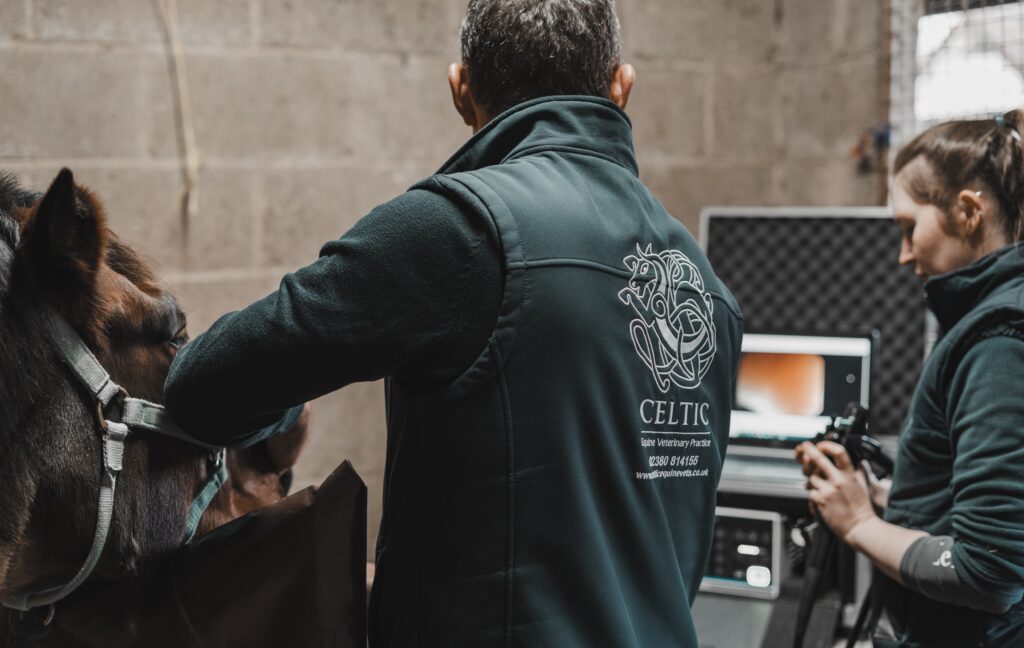
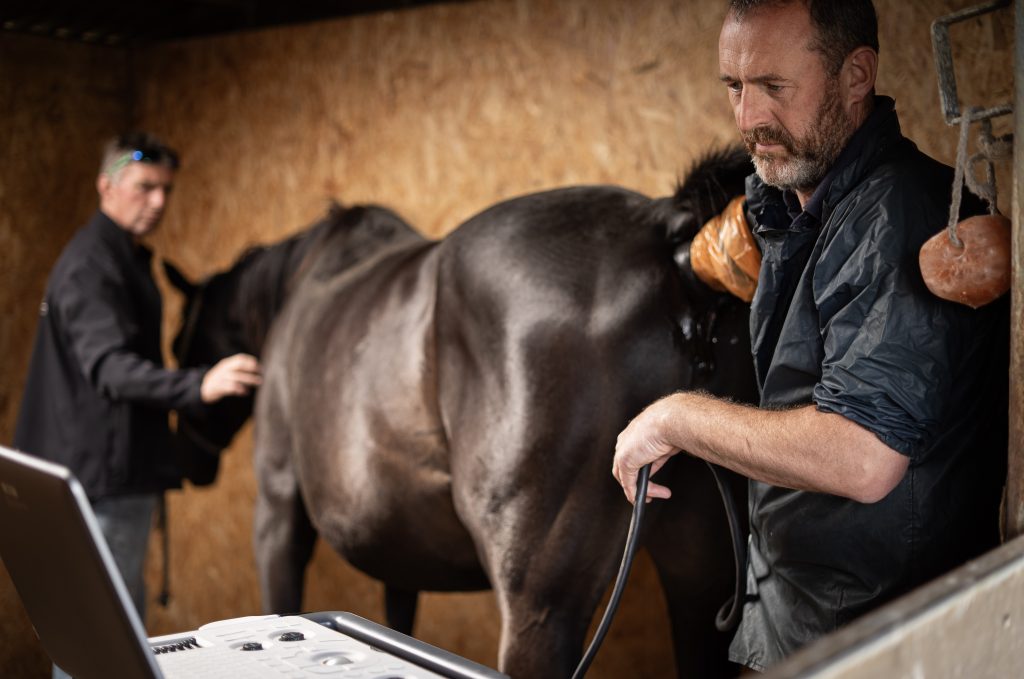
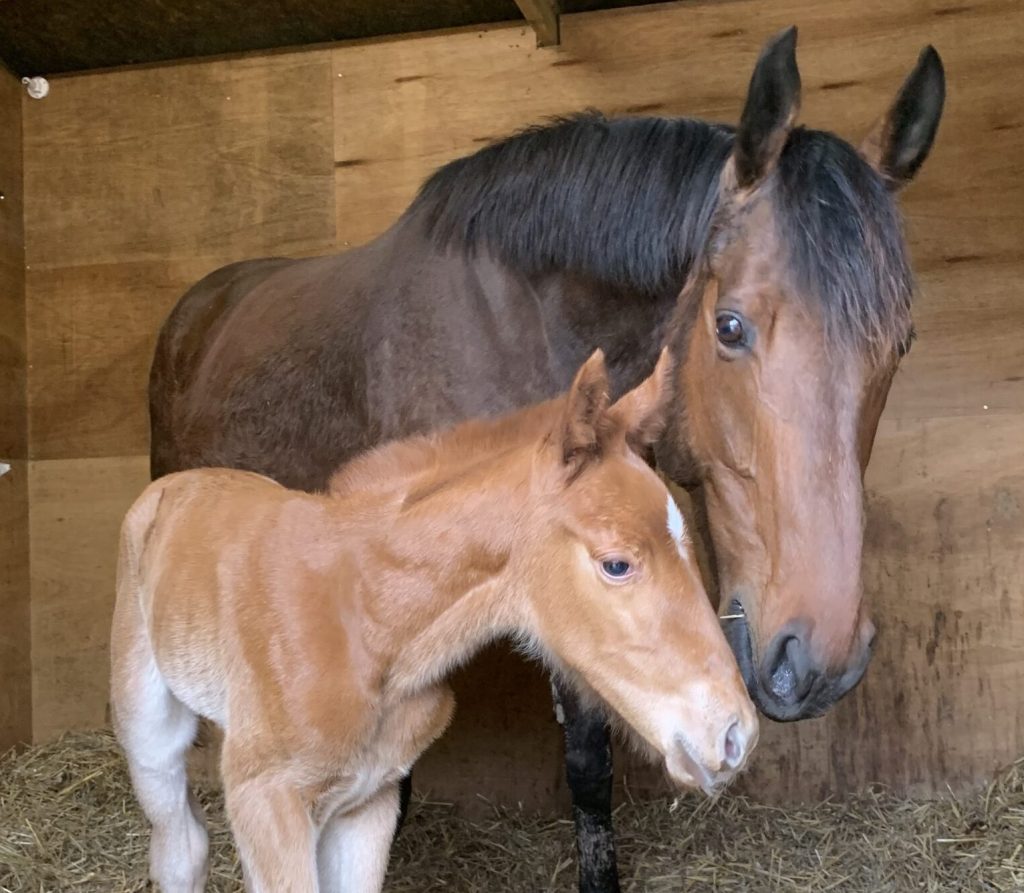
Stud Medicine
We offer a range of services for the broodmare, stallion and neonatal foal:
Broodmare:
- Routine sampling for pre-breeding venereal disease (NB to be performed after 1st Jan)
- Routine sampling for pre-breeding EVA and EIA (NB to be performed after 1st Jan)
- Fertility checks
- Artificial insemination (AI)
- Preparation for natural covering or AI
- Management of twin pregnancies
- Pregnancy diagnosis and monitoring
- Assisted deliveries
- We offer pregnancy scans for £72.50, representing excellent value for money. Please contact the office for package prices for chilled semen insemination.
Stallions:
- Routine sampling for pre-breeding venereal disease (NB to be performed after 1st Jan)
- Routine sampling for pre-breeding EVA and EIA (NB to be performed after 1st Jan)
- Castration
Neonatal Foals:
- Routine health checks (ideally for the first three days after birth, but especially at day two)
- Blood sampling to assess transfer of antibodies via the mare’s milk
- Umbilical scanning
Microchipping
As of 1st October 2020, it has been compulsory to microchip all equines of any age in England. All foals should have a microchip implanted before six months of age. We are equally happy to provide microchips or to use those provided by the relevant breed society.
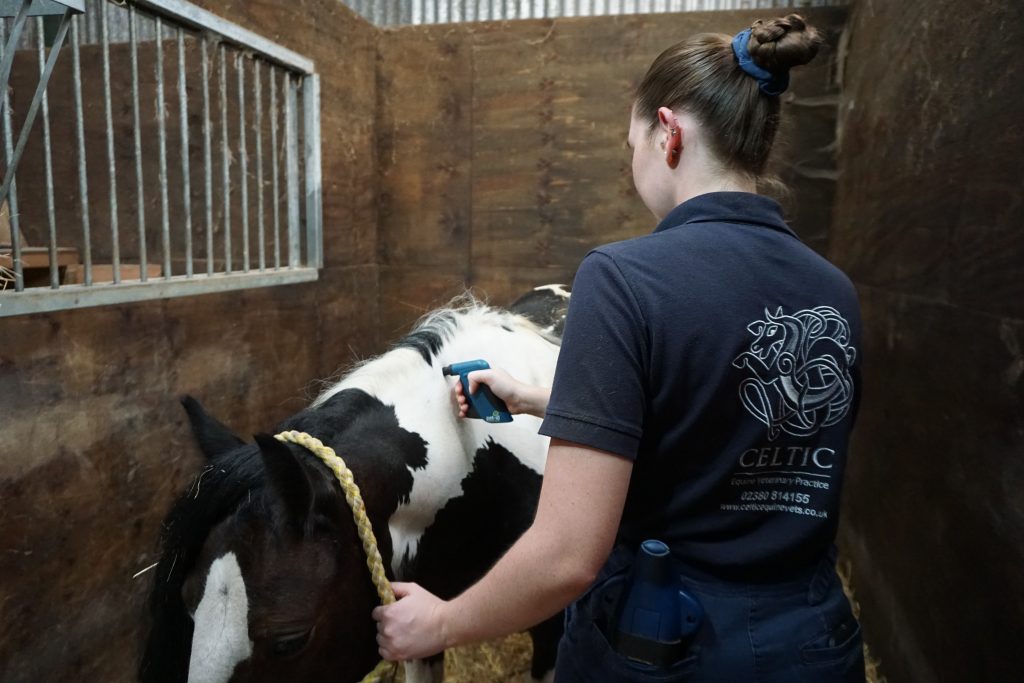
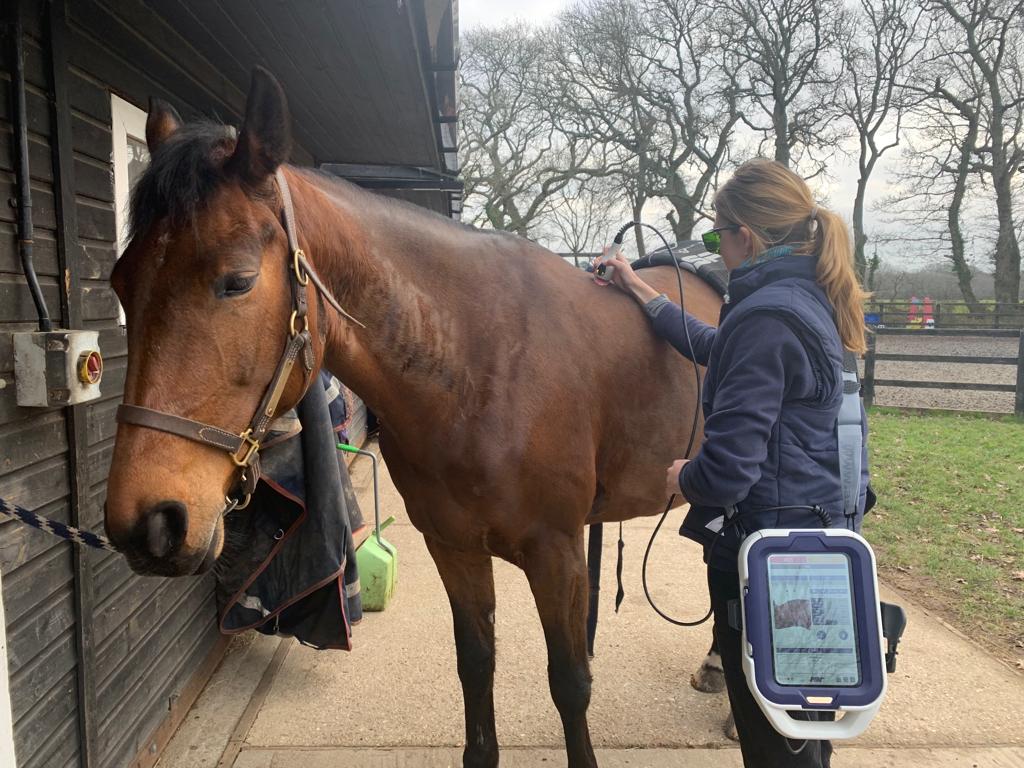
Class IV Laser
As the most powerful laser available on the veterinary market, Class IV laser can be used in a diverse range of scenarios including treatment of muscle spasm and pain, tissue oedema (swelling), inflammation and wounds. We’ve been particularly impressed with the healing rates of wounds treated by laser.
De-worming Advice and Programmes
To de-worm or not to de-worm? That is the question!
With the increasing emergence of resistance to de-wormers, it is more important than ever to instigate an intelligent worming programme. We advocate the use of testing for worms and only treating the horses that need it. 80% of a pasture’s worm burden is produced by only 20% of horses. Why give your horse a drug it doesn’t need?
We keep up-to-date with the most current de-worming advice, allowing us to provide evidence-led recommendations to our clients. Additionally, as a small and personal practice, we know your horse, your set up and your yard, allowing us to tailor our recommendations to your individual circumstance. We provide a competitive worming programme for the year – please ask one of our vets or call our office for more information.
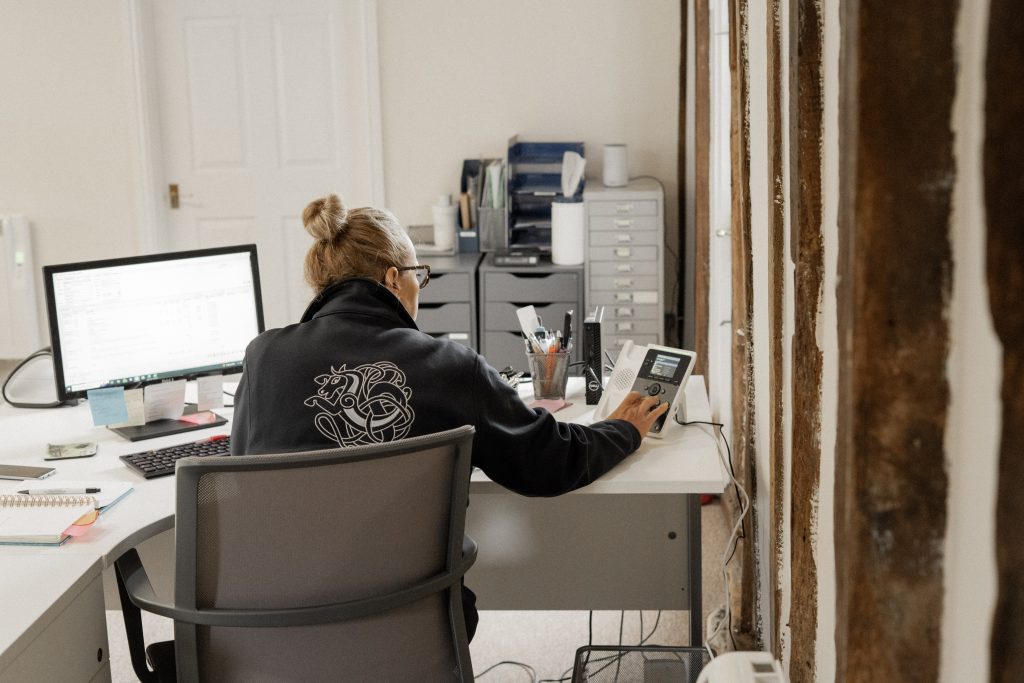
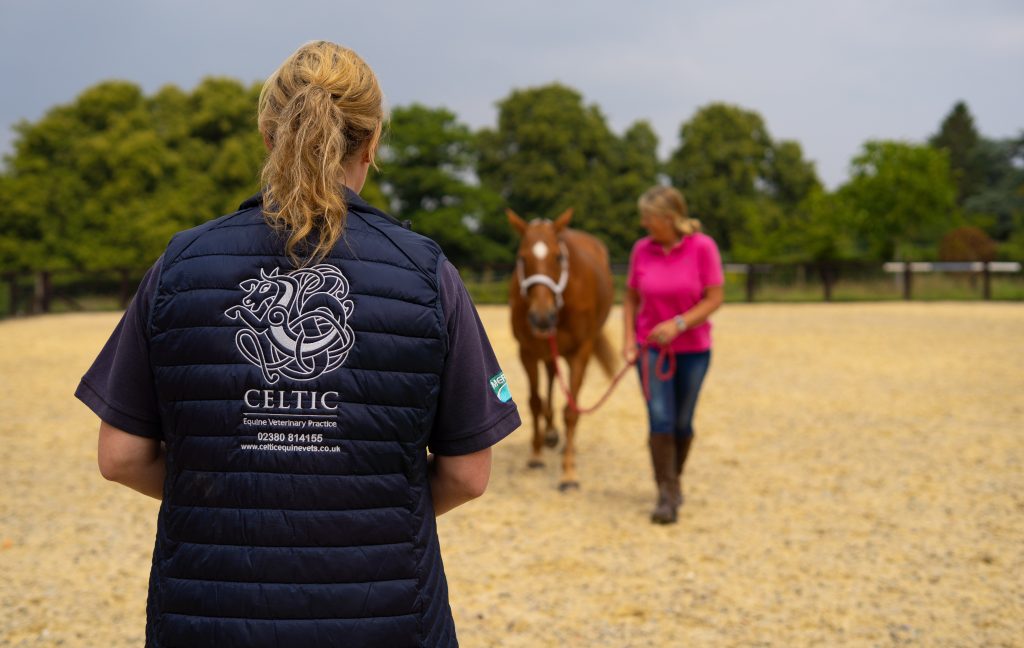
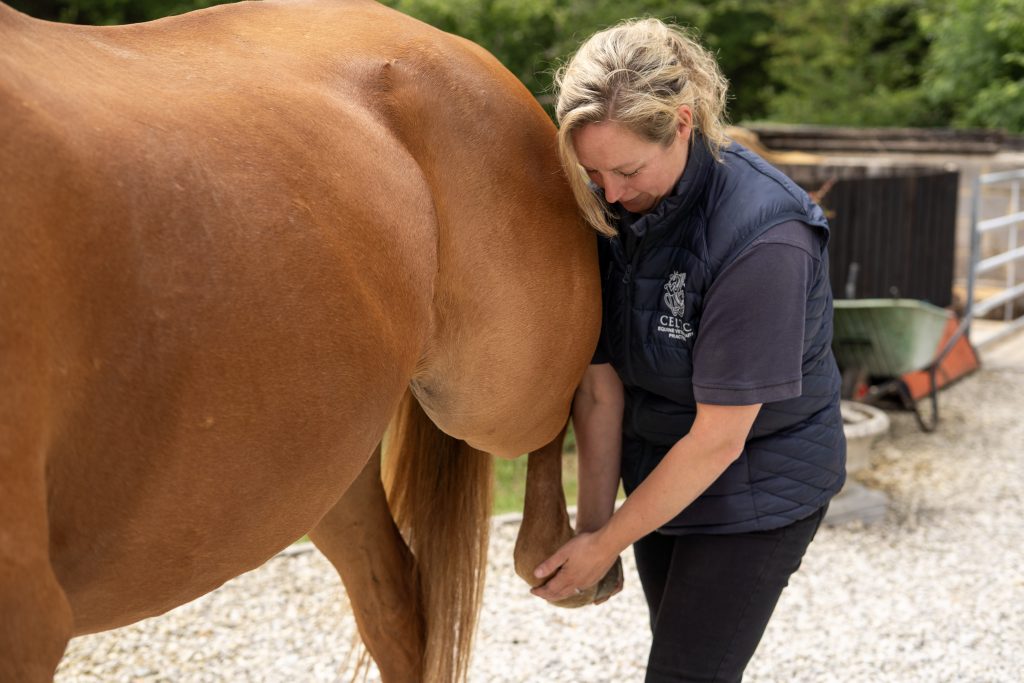
Pre-Purchase Examination
Pre-Purchase Examinations (PPE) or ‘Vettings’ come in two varieties – two-stage or five-stage. Each stage involves:
Stage 1) General physical examination at rest
Stage 2) Examination at walk and trot
Stage 3) Examination during exercise
Stage 4) Examination during the recovery period after exercise
Stage 5) Repeat examination at walk and trot
A five stage pre-purchase examination can take up to two hours. A blood sample is taken at each PPE for storage, and optional radiographs (X-rays) may be requested for high value horses.
A five-stage vetting is more able to assess the suitability of a horse for your intended purpose, because it is a more in-depth examination and is able to visualise the horse performing at exercise. For these reasons, we would strongly recommend undertaking a five stage vetting for any horse or pony that you are considering buying. The purpose of a vetting is to try to identify any pre-existing problems prior to purchase, and it may be required by certain insurance companies for full coverage. This is the equine equivalent of performing a survey before buying a house!
Castration
Is he proving to be a bit too much ‘man to handle’?
We provide castration either under standing sedation or general anaesthesia at your yard, depending on the size and age of the colt. Our packages include the cost of sedation, local anaesthetic, pain relief and a five-day course of antibiotics and anti-inflammatories. Additional costs include the visit fee and appropriate cover for tetanus for the colt depending on their vaccination status.
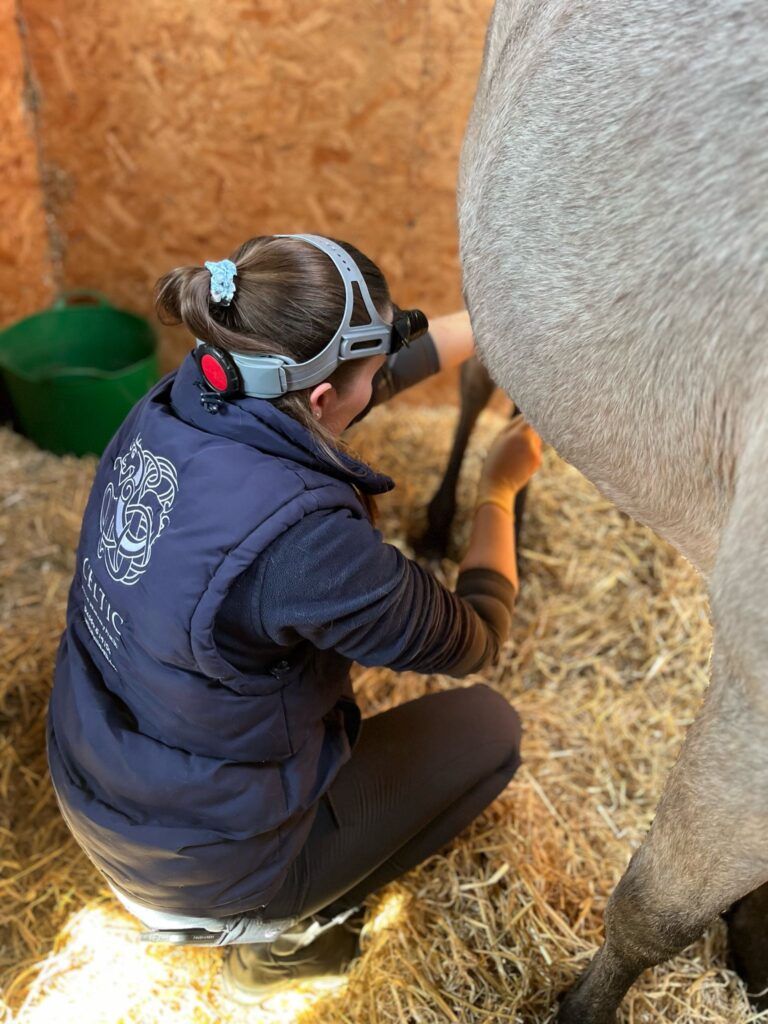
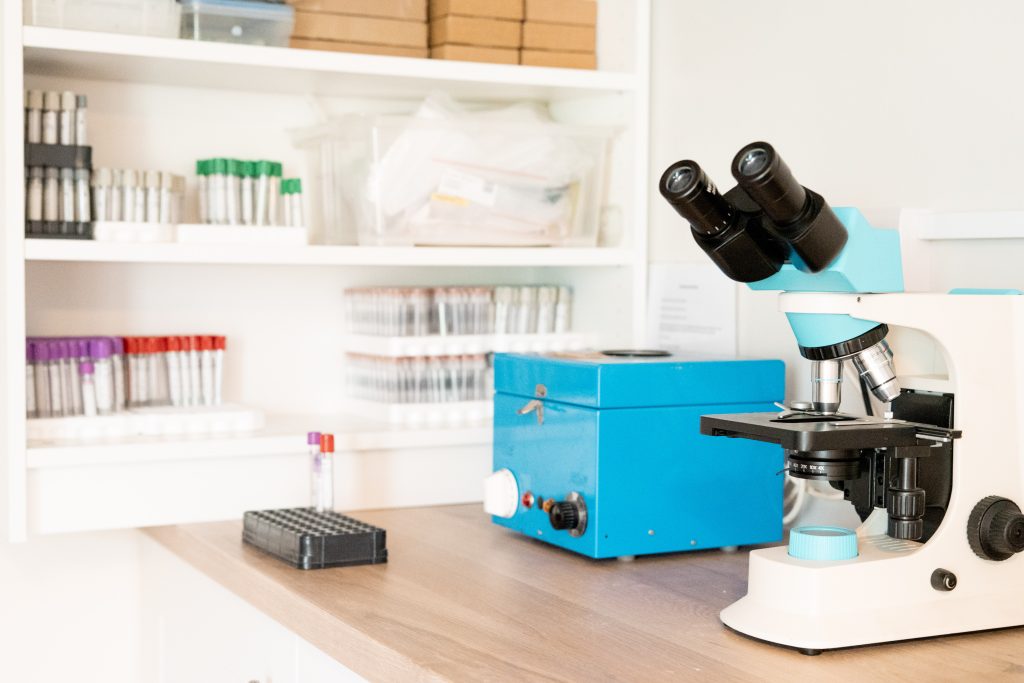
Laboratory Services
We use specialist equine veterinary laboratories throughout the UK, allowing us access to the opinion of the country’s top internal medicine specialists and pathologists. Blood samples results are often received within 24 hours of sending a sample, but we also have arrangements with more local laboratories for same day analysis where required (subject to day and time). We know the importance of getting quality results to our clients in a timely fashion, and our office staff will advise the most appropriate days and times for an appointment to minimise delays in postage and subsequent degradation of the sample.
Referrals
Whilst we aim to provide high level veterinary care from the comfort of your yard wherever possible, we also have good relationships with all of the referral hospitals in the South in the event more complicated cases require advanced treatment, MRI or surgery.
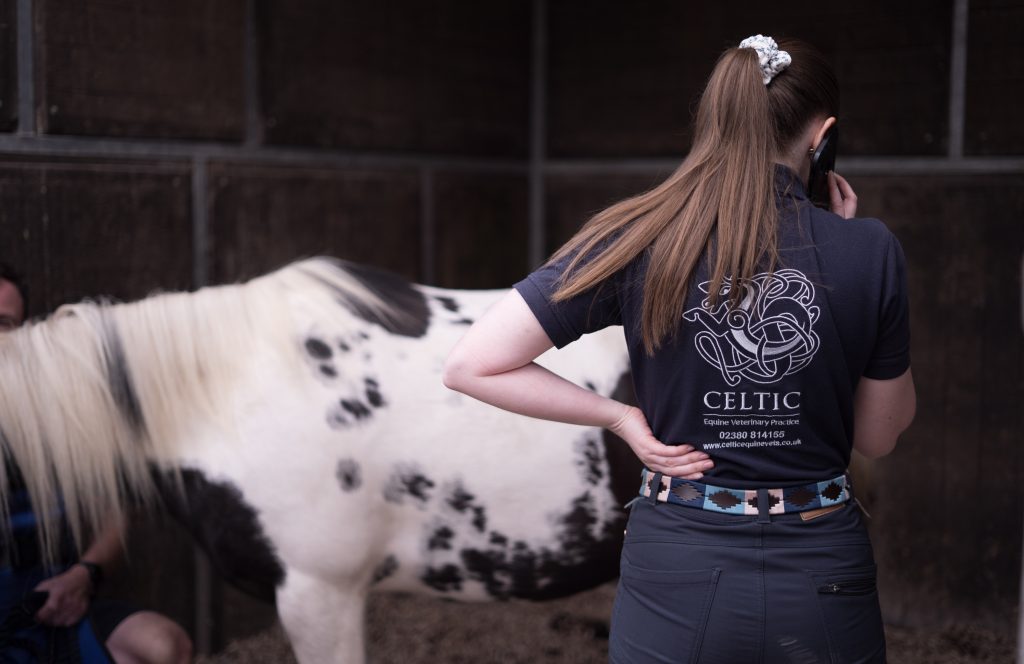
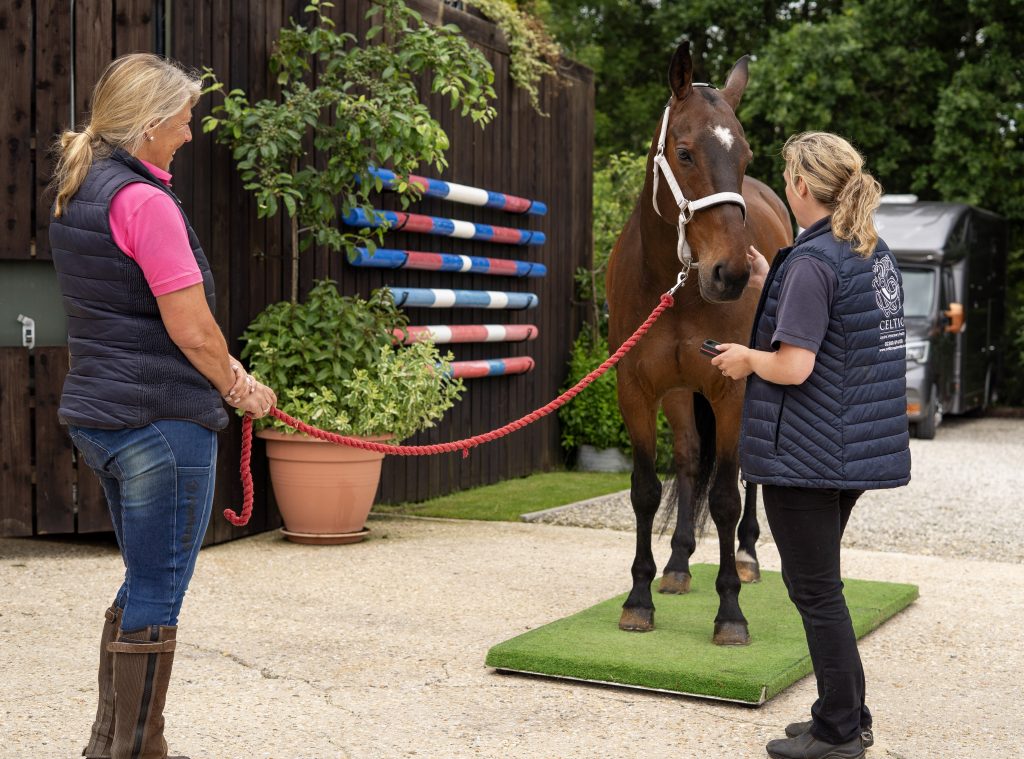
Nutritional Consultations
Struggling to keep the weight tape down on your ‘good do-er’? Or perhaps your old boy is struggling to gain weight?
Vet Chloe is a qualified independent nutritionist and travels with a mobile weighbridge. She spent three years as a Nutritional Manager at Dodson and Horrell, during which time she worked alongside Team GB, numerous performance horses and studs across Europe and the Middle East.
As an independent nutritionist, you can rest assured that Chloe will only recommend the best product for your horse’s individual circumstance, rather than being limited to a particular company’s range of products. She is able to calculate the amount of type of forages and feeds to ensure your horse’s macro- and micronutrients needs are met. This is just one more way in which Celtic Equine Vets provides a holistic service, helping your horse, pony and or donkey to feel their best.
Behavioural Consultations
Do you find yourself lying awake the night before your horse’s vaccinations, worrying that someone will get hurt? We’ve got the vets for you.
Chloe is passionate about all things behaviour. She works within your equine’s comfort zone in a kind and compassionate way to help improve their phobias. We understand that all it may take is one bad experience for a horse to develop undesirable behaviour, and we aim to retrain our phobic patients to a place of optimism and relaxation through the use of positive (clicker) and negative (pressure-release) reinforcement. We are very happy to discuss your individual case with you to form a game plan before attending – please give us a call to find out more.
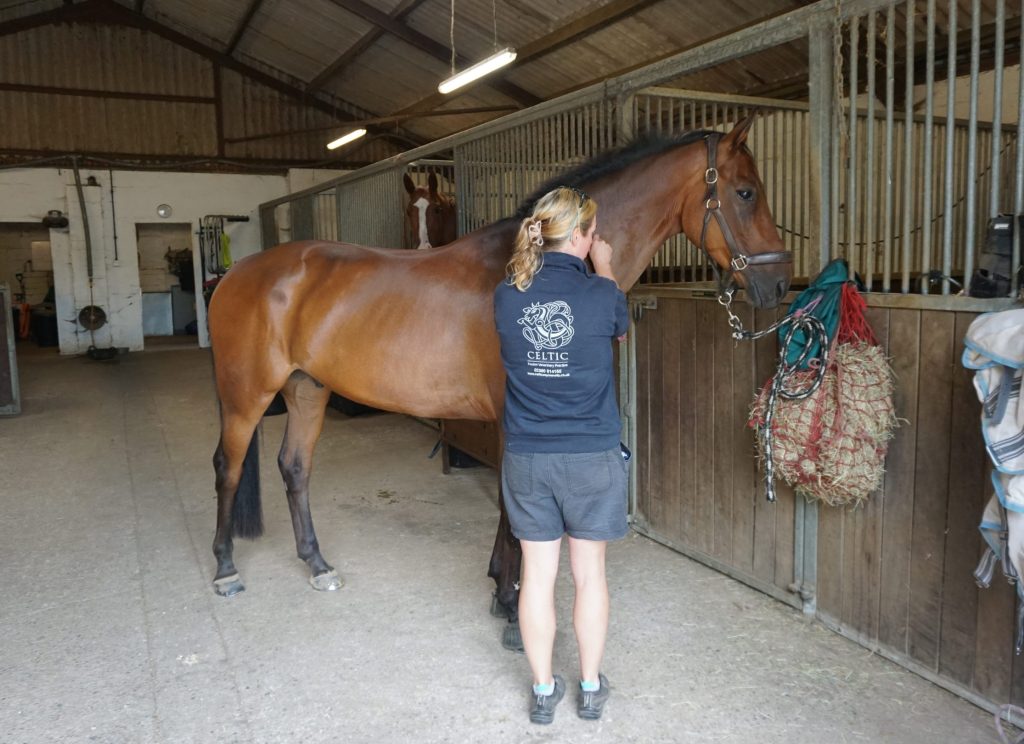
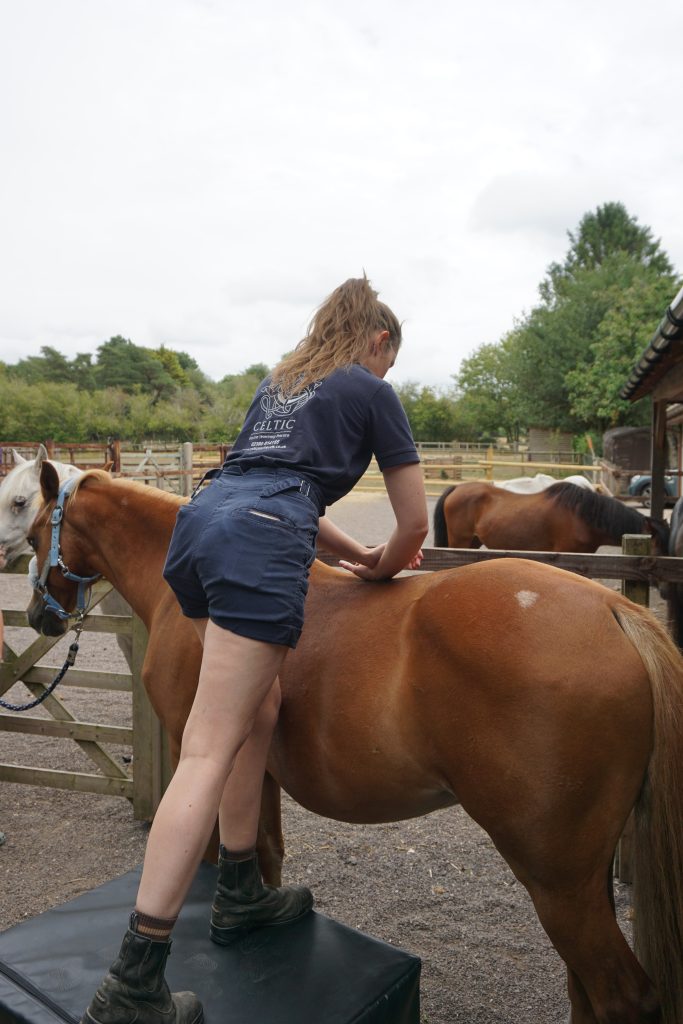
Chiropractic Care
Equine chiropractic care focuses on the assessment and treatment of restrictions or dysfunctions within the spine, musculoskeletal and nervous system that may contribute to pain, reduced performance, or changes in behaviour. Subtle issues such as stiffness, resistance under saddle, difficulty bending, or changes in gait can often be linked to underlying biomechanical problems.
Using gentle, specific adjustments, chiropractic treatment aims to restore normal mobility and function to affected joints, supporting the horse’s overall comfort, balance, and performance. This can be especially valuable for sport horses, horses in rehabilitation, or those experiencing unexplained performance problems.
At Celtic Equine Vets, we take a holistic approach by integrating chiropractic care with veterinary medicine, ensuring that each horse receives a tailored plan that addresses both clinical and musculoskeletal needs. Molly is a qualified equine chiropractor and is passionate about helping horses perform at their best.
End of Life Care
We know that the hardest part of horse ownership is having to say goodbye. We feel very privileged to be able to give our four-legged friends the gift of a pain-free and peaceful passing. All of our vets know what it is like to lose a much-loved horse, and so their approach is kind and empathetic. Always. We acknowledge that there is no one ‘right way’ to put a horse to sleep, and we will do our best to work with you to see your wishes fulfilled. Our office staff are second-to-none in organising the logistics of ‘what to do after’ – so that’s one less thing to have to worry about.
